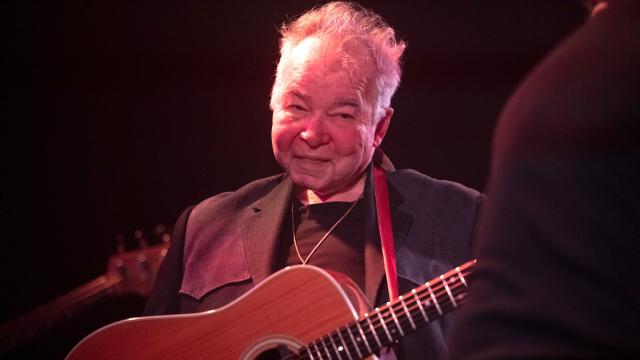Legendary songwriter John Prine died on Tuesday due to covid-19 complications. If you know one John Prine song, it’s probably “Paradise,” a bittersweet lament about the devastation the coal mining industry brought to his parents’ hometown in Kentucky.
Environmental devastation is often explained through numbers”2 degrees Celsius of warming, Category 5 cyclones, thousands of tons of pollution”but those numbers all affect real people with real stories. Prine’s song is personal story about coal country, but “Paradise” also serves up a lesson for today’s climate fight: Namely, that the fight for saving what we can is worth it, even if we’re not around to see all the benefits.
“Paradise” is about a real town that existed in Kentucky. It sat in the shadow of a coal plant and strip mines like so many small communities in Appalachia before eventually being razed in 1967 to expand the Tennessee Valley Authority’s local coal plant. Prine’s song”released in 1971″laments the loss of Paradise and the drivers behind it. To wit:
“And daddy won’t you take me back to Muhlenberg County,
Down by the Green River where Paradise lay.
Well, I’m sorry my son, but you’re too late in asking
Mister Peabody’s coal train has hauled it away.”
Mister Peabody refers to Peabody Energy, the biggest private-sector coal company in the world and the top producer of coal in the U.S. Despite destroying Paradise and the surrounding environment with “the world’s largest shovel,” Prine goes on to sing that Peabody “dug for their coal till the land was forsaken, then they wrote it all down as the progress of man.”
Nearly five decades later, the words ring truer than ever. Peabody Energy is still around, as are the other 99 major companies who are responsible for 70 per cent of all carbon emissions. These companies called”and continue to call”their work progress despite knowing the huge risks fossil fuel extraction poses to the climate.
Since Prine penned “Paradise,” the devastation he chronicled has gotten far, far, worse. Tens of thousands of coal miners have pliant politicians. With those odds, it can be easy to feel hopeless. But giving up is not option because we’ve got a world to win.
In “Paradise,” Prine imagined his own death, asking for his ashes to be floated down the Green River that the former town sat near so he could be “halfway to Heaven with Paradise waiting.” Though the area had suffered so much degradation and the town had been destroyed, Prine still felt such a connection with it that he wanted to rest there forever.
It’s a lesson that maps onto the fight for climate justice. The fight today to preserve some semblance of the climate that has allowed society to thrive is an existential one with the future of humanity in the balance. Every coal plant that closes and every tenth of a degree we can stop the world from heating is worth the effort. It all matters, even if we’re not around to see the end of the fight.
And Prine’s death is a poignant reminder of that. Peabody’s coal mine and plant in Paradise are set to shutter by the end of this year.
